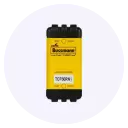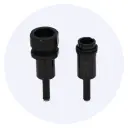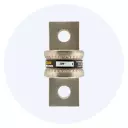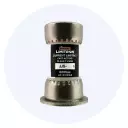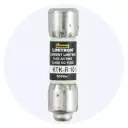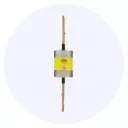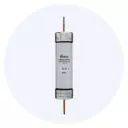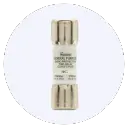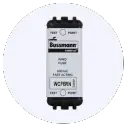Blog
GFCI vs AFCI: Eaton-Bussmann Fuse Differences Explained

Understanding the Differences: GFCI vs AFCI
When it comes to electrical safety, two crucial devices that often come into play are Ground Fault Circuit Interrupters (GFCI) and Arc Fault Circuit Interrupters (AFCI). Both are designed to protect against electrical hazards, but they serve distinct purposes and operate in different ways. In this article, we’ll delve into the Eaton-Bussmann fuse differences, exploring the product parameters, specifications, uses, and precautions of GFCI and AFCI devices.
Eaton Bussmann: A Leader in Circuit Protection Solutions
Eaton Bussmann is a renowned company specializing in intelligent power management solutions. With a strong commitment to sustainability and quality, they provide a wide range of circuit protection products, including overcurrent and overvoltage protection devices. Their product portfolio includes power, electronics, and transportation solutions, catering to diverse industries and applications.
GFCI: Ground Fault Circuit Interrupters
GFCI devices are designed to protect against ground faults, which occur when there’s an unintentional path of electricity to the ground. This can happen when a person comes into contact with a live electrical wire, or when there’s a fault in the electrical system. GFCI devices monitor the current flowing through a circuit and interrupt the power supply if they detect a ground fault. They’re commonly used in areas where water is present, such as bathrooms, kitchens, and outdoor locations.
AFCI: Arc Fault Circuit Interrupters
AFCI devices, on the other hand, are designed to protect against arc faults, which occur when there’s a spark or electrical discharge between two or more conductors. These sparks can ignite fires, especially in areas with flammable materials. AFCI devices detect the unique characteristics of arc faults and interrupt the power supply to prevent fires. They’re commonly used in areas where electrical wiring is more prone to damage, such as in older homes or in areas with high Levels of electrical activity.
Eaton-Bussmann Fuse Differences: GFCI vs AFCI
When comparing GFCI and AFCI devices from Eaton-Bussmann, there are several key differences to consider:
- Protection mechanism: GFCI devices protect against ground faults, while AFCI devices protect against arc faults.
- Detection method: GFCI devices monitor current flow, while AFCI devices detect the unique characteristics of arc faults.
- Application: GFCI devices are commonly used in areas where water is present, while AFCI devices are used in areas where electrical wiring is more prone to damage.
- Product specifications: Eaton-Bussmann offers a range of GFCI and AFCI devices with varying specifications, such as voltage ratings, current ratings, and response times.
Uses and Precautions
Both GFCI and AFCI devices are essential for ensuring electrical safety, but they must be used correctly and with caution. Some key precautions to consider:
- Proper installation: GFCI and AFCI devices must be installed correctly to ensure proper function and safety.
- Regular testing: Devices should be tested regularly to ensure they’re functioning correctly.
- Replacement: Devices should be replaced if they’re damaged or malfunctioning.
- Compatibility: Ensure that GFCI and AFCI devices are compatible with the electrical system and other components.
Conclusion
In conclusion, GFCI and AFCI devices from Eaton-Bussmann are crucial for ensuring electrical safety, but they serve distinct purposes and operate in different ways. By understanding the differences between these devices, including their product parameters, specifications, uses, and precautions, users can ensure they’re using the right device for their specific application. Whether you’re an engineer, electrician, or homeowner, it’s essential to prioritize electrical safety and use the correct devices to protect against ground faults and arc faults. With Eaton-Bussmann’s range of circuit protection solutions, you can trust that you’re getting high-quality, reliable devices that meet the highest standards of safety and performance.

